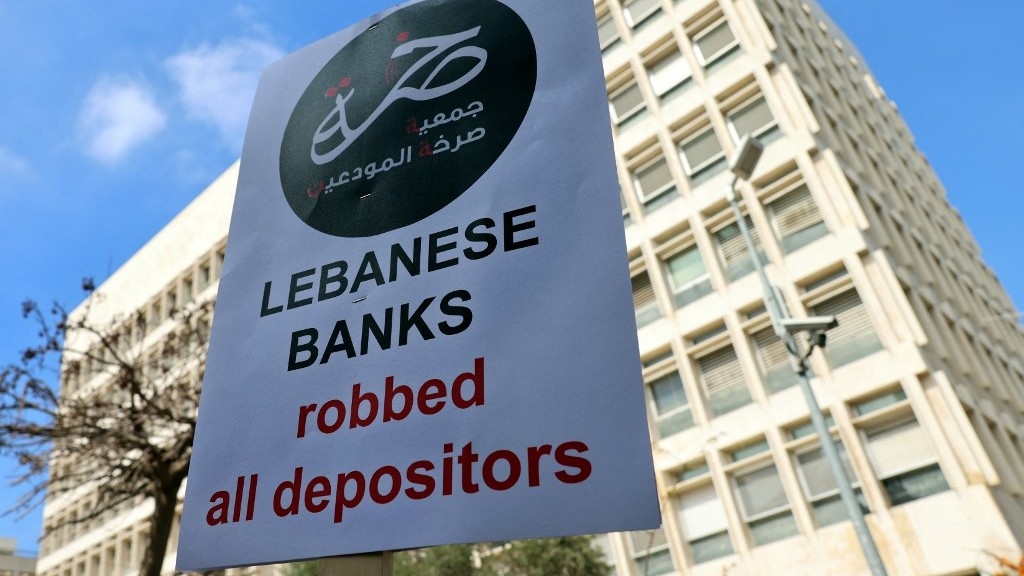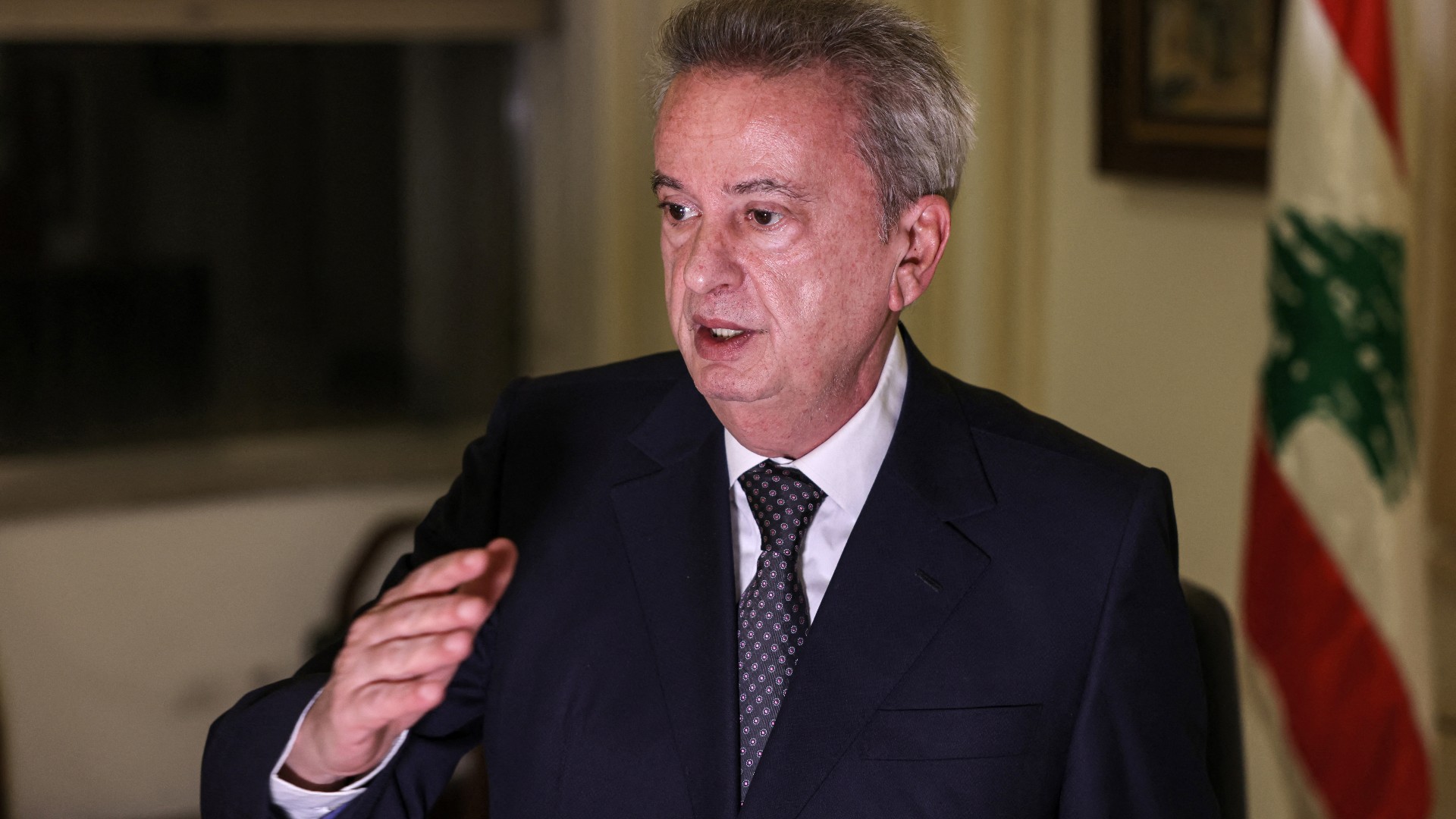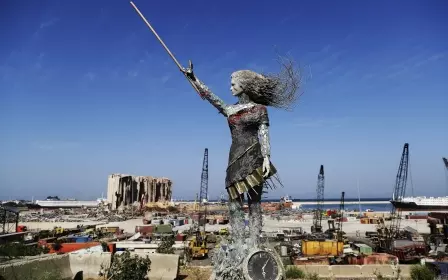How has Lebanon avoided total collapse?

Lebanon poses an interesting puzzle of a financial and economic crisis.
Despite former President Michel Aoun’s declaration - while he was still in office in 2020 - that the country was on a path “to hell”, and while it was ranked by the World Bank the following year as one of the world’s worst crises in more than a century and a half, Lebanon does not seem to be hitting rock bottom in the way one might have assumed it would.
Even more puzzling for those who follow global economics, Lebanon’s crisis has seemed to take a slow-paced path that diverges from the norm with regards to financial meltdowns. Indeed, the spiral doesn’t yet seem to be out of control.
People realise that by showing 'resilience' to conditions that are flagrantly unacceptable, they can sustain and stabilise a toxic state of governance
Most of the financial and economic crises of the past several decades have followed a similar path, paved with aggressive measures and hard-hitting policies. In Greece, from 2010-11, parliament passed five austerity packages, followed in 2013 by a reform law to facilitate rescue loans. Whether one supports such measures or not, it is clear that the country took decisive action.
The same applies to the ongoing crisis in Sri Lanka, which cannot expect a European bailout, as the government recently warned of tough austerity measures ahead.
New MEE newsletter: Jerusalem Dispatch
Sign up to get the latest insights and analysis on Israel-Palestine, alongside Turkey Unpacked and other MEE newsletters
Lebanon’s crisis, however, seems to have prompted less immediate action. It has been chaotic, yet uneventful - marked by what economists might refer to as “noise”, or hype. Since the massive protests of October 2019, only three major events have taken place: the Beirut port explosion, parliamentary elections, and the border deal with Israel.
Flipping the script
The first of these events was nearly supernatural in magnitude: the August 2020 Beirut blast, which was the result of criminal negligence on the part of Lebanese authorities, as outlined in detail by Human Rights Watch. The second, parliamentary elections, went forward against all odds last May, while the third - the maritime border deal between Lebanon and Israel - was signed last October.
These three major events can easily be de-linked from the country’s financial and economic crisis, despite the connection between the port explosion and Lebanon’s slide towards failed-state status. And other than these events, little has happened beyond rising economic imbalances and deteriorating socioeconomic conditions.
In a similar setting elsewhere, measures by the International Monetary Fund (IMF) would be making front-page headlines every other day. But this is not the case for Lebanon, where the IMF last made news in April 2022 after reaching a staff-level agreement (SLA) with Lebanese authorities on economic reforms.
Indeed, the nonchalance of Lebanon’s ruling elite has pushed international financial institutions to flip the traditional victim-villain script. Last summer, the World Bank issued a report accusing Lebanese authorities of orchestrating a “Ponzi finance” scheme, deliberately pursuing fiscal policies that were harmful to citizens while aiming to sustain the country’s power-sharing confessional system. It cited “massive losses that were imposed on the depositors after the collapse”. This poses yet another paradox, as even the most leftist economists can no longer accuse the IMF or World Bank of playing the role of villain in Lebanon’s crisis.
Business as usual
So what has been happening? This snapshot seems to indicate that Lebanon’s ruling elite is indulging in a business-as-usual routine - one that has normalised citizens’ robberies of banks to claim their own savings, along with endless fuel queues, chaotic exchange-rate policies, and a central bank governor, Riyad Salame, who goes on live TV despite being charged with illicit enrichment in absentia.
How is this possible in a country going through the worst economic crisis in its history, one that has pushed around 80 percent of its people below the poverty line?
According to the UN, the term “resilience” is defined as “the ability of a system, community or society exposed to hazards to resist, absorb, accommodate to and recover from the effects of a hazard in a timely and efficient manner”. It has used this concept in relation to the survival tactics used by Lebanese people during times of hardship. But more recently, this concept has been challenged within the Lebanese community, as people realise that by showing “resilience” to conditions that are flagrantly unacceptable, they can sustain and stabilise a toxic state of governance.
Many factors are contributing to this deadlocked state of “negative resilience”. The sectarian confessional system defies and deflates any potential for the rise of an alternative political choice. The economy’s dependence on remittances, which make up more than one third of the country’s GDP (38 percent), helps to sustain a dollarised commodity market.
From a geopolitical perspective, external forces influencing the Lebanese landscape have not yet decided to push the country to the breaking point. Finally, the ruling elite continues to practice “trial and error” tactics, with decisions and laws rolled back when public discontent rises.
In Lebanon today, the ruling elite seem to have mastered the art of buying time, while turning a deaf ear to the ticking clock.
The views expressed in this article belong to the author and do not necessarily reflect the editorial policy of Middle East Eye.
This article is available in French on Middle East Eye French edition.
Middle East Eye delivers independent and unrivalled coverage and analysis of the Middle East, North Africa and beyond. To learn more about republishing this content and the associated fees, please fill out this form. More about MEE can be found here.







